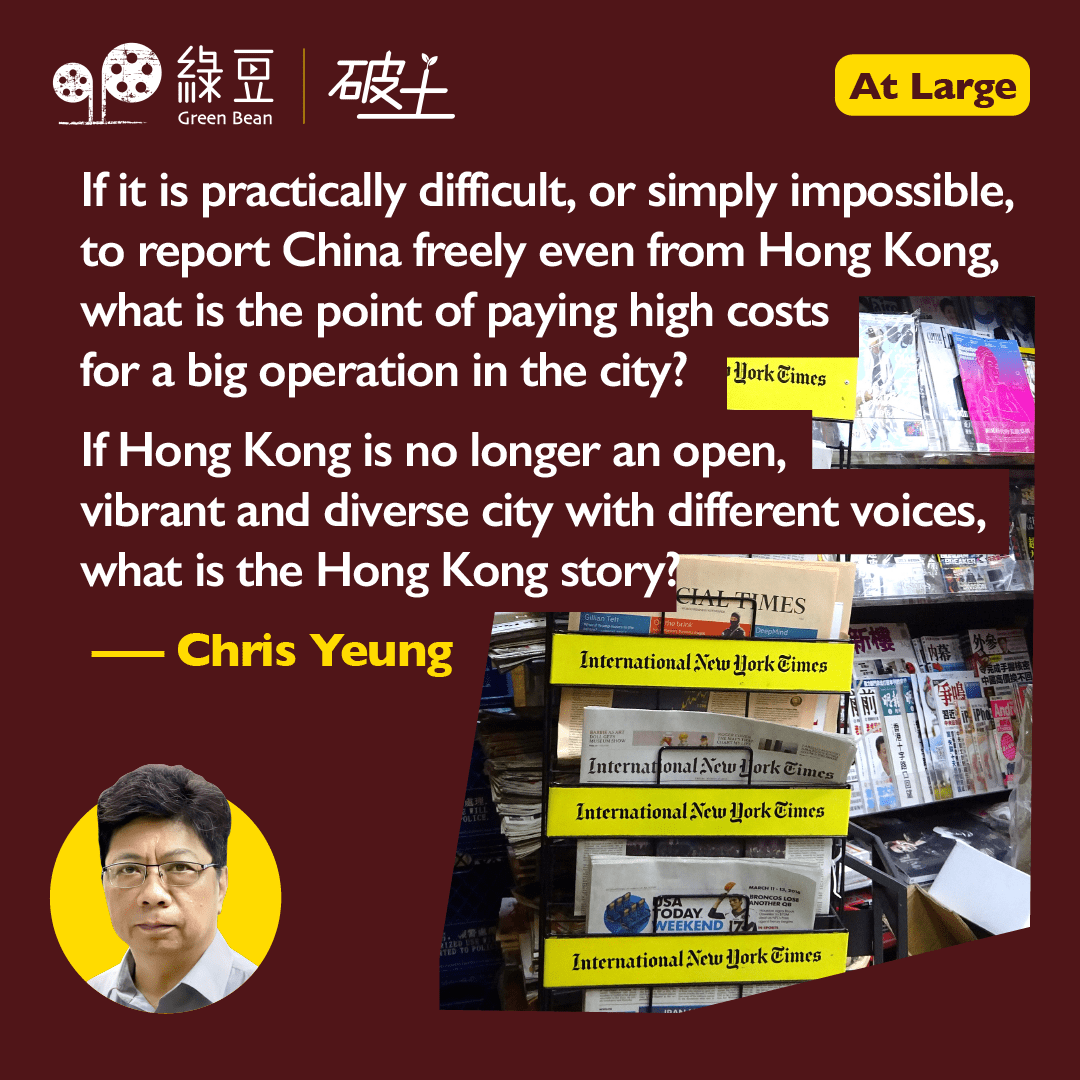WSJ finds Singapore, not HK, its Asia home

WSJ finds Singapore, not HK, its Asia home | Chris Yeung | At Large
Amid assurances by a top Hong Kong legal official Andrew Lam that sharp criticism by the media against the Government will still be allowed after the enactment of the Article 23 legislation, the Wall Street Journal has taken nothing for granted.
On World Press Freedom Day
In a move clearly prompted by doubts about press freedom, they are reportedly relocating their Asia headquarters from Hong Kong to Singapore.
Welcome to the latest episode of the long-running tale of the two cities, namely Hong Kong, now a Special Administrative Region of China, and Singapore.
Changes to the WSJ’s Asia operations were reported by the media last Friday, which marks the World Press Freedom Day.
In a letter to staff, WSJ editor-in-chief Emma Tucker said its decision comes after other foreign firms have reconsidered their operations in Hong Kong, the leading international financial hub in China.
“Some of these changes are structural: We are bringing together our business, finance and economics coverage. Some are geographic: We are shifting our center of gravity in the region from Hong Kong to Singapore, as many of the companies we cover have done.”
She stopped short of making any references to the political changes that have unfolded in Hong Kong since the implementation of a law on national security in July 2020, followed by another law on safeguarding national security at the end of March.
The air of anxieties
This is despite the fact that the US news outlet, among a handful of other prominent media bodies in the US and Britain, has been singled out for criticism by the mainland and Hong Kong authorities for their editorials and news reports about a host of politically sensitive issues, including Article 23, since the 2019 social movement.
The hardline approach of the John Lee administration in fighting back criticism and negative reports by foreign media has deepened the air of anxieties and uncertainties in the foreign media circle.
The ongoing trials of Apple Daily founder Jimmy Lai and executives and The Stand News ( both had ceased operation) ,and the way the trials have been conducted have not been reassuring to journalists. The opposite is true.
The risk of a breach of the laws on national security and seditious publication cannot be brushed aside as if nothing had happened. The Apple Daily and The Stand News cases aside, a list of arrests and prosecutions concerning pro-democracy political figures and activists have painted a bleak picture of media freedom and freedom of expression in the city.
Around the handover
Flashed back to the decades around and after the 1997 handover, Hong Kong has emerged as the obvious choice of foreign media and business firms for housing their headquarters in Asia in view of the city’s strategic location.
For foreign media, Hong Kong cannot be a better place to tell the China stories because of the city’s openness, free flow of information, press freedom, common law system and independent judiciary, among others.
With the Chinese economy booming and Hong Kong’s role being a financial hub that connects China and the world, it is not surprising that major international financial media have set up Asia headquarters in Hong Kong.
Their reporters based in Hong Kong do not just cover the city, but the neighboring region, including the Greater Bay Area. The Hong Kong story has increasingly become part of the China story that foreign media is keen to tell their readers.
Why Hong Kong?
The drastic changes unfolded in China and Hong Kong in the past decade or so, in particular the recent years, have prompted a rethink of foreign media and firms.
Last month US news outlet Radio Free Asia closed its Hong Kong office, citing concerns about staff safety amid concerns about the national security legislation. Paris-based media watchdog Reporters Without Borders said a representative was denied entry into the city, the first of its kind.
While facing more risks and an uncertain environment, foreign news outlets have reviewed their original game plan of reporting China from Hong Kong since the NSL was in place.
A host of questions could be raised.
If it is practically difficult, or simply impossible, to report China freely even from Hong Kong, what is the point of paying high costs for a big operation in the city? If Hong Kong is no longer an open, vibrant and diverse city with different voices, what is the Hong Kong story? Do any readers care? If WSJ can continue to provide a decent coverage of China stories from Singapore, why keep a strong presence in the city?
The WSJ move has shed some light on their answers to those questions.
The last questions to ask: Will the relocation of WSJ’s Asia headquarters from Hong Kong to Singapore be sorely missed by the foreign media-bashers at the corridors of power and in the pro-Beijing camp?
( Photo : Ahardeefortm, CC BY-SA 4.0 <https://creativecommons.org/licenses/by-sa/4.0>, via Wikimedia Commons )
▌[At Large] About the Author
Chris Yeung is a veteran journalist, a founder and chief writer of the now-disbanded CitizenNews; he now runs a daily news commentary channel on Youtube. He had formerly worked with the South China Morning Post and the Hong Kong Economic Journal.